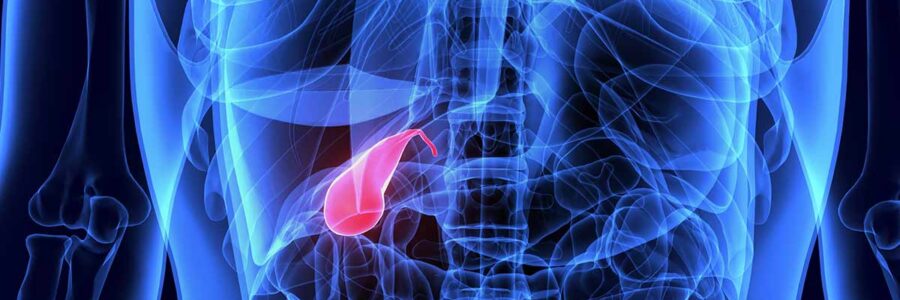The gallbladder is a small sac-shaped organ that sits right below the liver. Its principal function is to store the bile produced in the liver and concentrate it before releasing it into the small intestine. The two most common health issues of the gallbladder are local inflammation (cholecystitis) and the formation of gallstones (cholelithiasis).
So far, no sound scientific evidence exists that detox specifically helps with the gallbladder. On the other hand, detox helps to support the liver and cleanse it of trapped toxins. By this logic, the liver would produce cleaner bile without harming the gallbladder.
Quick Links:
What are Toxins?
Toxins are compounds that can be harmful to the human body. Many toxic compounds are natural, such as the mycotoxins produced by fungi and molds, or the toxins that some bacteria make. Still, the vast majority of toxins are synthetic in nature. The most common of them include:
- Pesticides
- Chemical waste
- Plastic
- Radioactive compounds
- Synthetic fertilizers and growth stimulants
- Synthetic hormones
These toxins enter the body through contaminated food or water and damage the body’s organs and tissues. In many cases, they get “trapped” in a particular organ, accumulate there, cause chronic inflammation, and impair the organ’s function.
Although all organs play a role in eliminating toxins, the ones that do most of the heavy lifting are the kidneys and the liver.
How Does the Gallbladder Work?
The gallbladder works as a storing sac for the bile the liver produces. Additionally, it makes this bile more concentrated to help digest fats effectively.
When you eat something, the gallbladder releases part of its bile into the small intestine. There, the bile makes the fats in your food digestible and ready to be absorbed. Without bile, it’s impossible to digest and absorb fats and fat-soluble vitamins A, D, E, and K!
Detox and Gallstones
In some cases, the bile stored in the gallbladder can form solid concrements known as gallstones. Common risk factors include: [1]
- Excess weight and obesity
- Rapid weight loss
- Sedentary lifestyle
- Diabetes
- Taking some medications (oral contraceptives, some anti-hypertension drugs, some antibiotics like ceftriaxone)
To summarize, there’s a clear link between an increased protein or fat content in the bile and the risk of gallstone formation. However, there is no evidence that any toxins might have the same effect.
Although detox hasn’t been shown to help with gallstones, it might benefit someone dealing with this issue. For example, one study suggested that gallstones increase the risk of developing gallbladder cancer because cancer-causing toxins stay longer in a gallbladder clogged with stones. [2]
Additionally, detox is beneficial for a wide range of other conditions!
Detox for Other Purposes
One of the most common uses of different detox programs is to lose weight and fight insulin resistance. For example, one study from 2015 reported that a lemon detox diet was able to reduce body weight, burn body fat, and improve insulin resistance after seven days of detox. [3]
Various detox strategies are effective for skin health. For example, fasting combined with fluid therapy was reported to be extremely beneficial for patients with severe atopic dermatitis that was unresponsive to conventional treatment! [4]
Sweat-induced detoxification, as the one achieved through regular sauna visits, also improves subjective well-being, better sleep, and fewer sick days. [5] However, objective detoxification markers failed to pinpoint any significant benefits of this approach.
Dietary detoxification is usually considered to be more effective—and with objective results! For example, one recent study reported that dietary detox might reduce serum gamma-glutamyltransferase (GGT) levels. GGT can be seen as a general reflection of the overall toxin burden in the body. [6]
With proper detox, even healthy people without any diagnosed issues may experience a significant improvement in their well-being, probably thanks to the cleansing of the liver from trapped toxins. One old study reported that a 7-day detox program improved the participants’ liver detoxification capacity by up to 23%! [7]
References:
- Njeze GE. Gallstones. Niger J Surg. 2013;19(2):49-55.
- Stinton LM, Shaffer EA. Epidemiology of gallbladder disease: cholelithiasis and cancer. Gut Liver. 2012;6(2):172-87.
- Kim MJ, Hwang JH, Ko HJ, Na HB, Kim JH. Lemon detox diet reduced body fat, insulin resistance, and serum hs-CRP level without hematological changes in overweight Korean women. Nutr Res. 2015;35(5):409-20.
- Kim KS, Nam HJ. Detoxification combining fasting with fluid therapy for refractory cases of severe atopic dermatitis. Evid Based Complement Alternat Med. 2013;2013:561290.
- Hussain J, Cohen M. Clinical Effects of Regular Dry Sauna Bathing: A Systematic Review. Evid Based Complement Alternat Med. 2018;2018:1857413.
- Kim JA, Kim JY, Kang SW. Effects of the Dietary Detoxification Program on Serum γ-glutamyltransferase, Anthropometric Data and Metabolic Biomarkers in Adults. J Lifestyle Med. 2016;6(2):49-57.
- MacIntosh A, Ball K. The effects of a short program of detoxification in disease-free individuals. Altern Ther Health Med. 2000;6(4):70-6.


